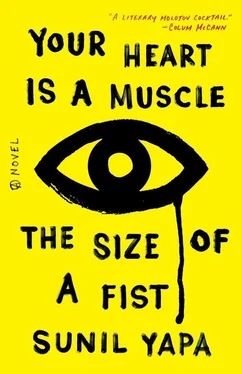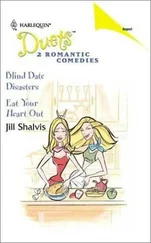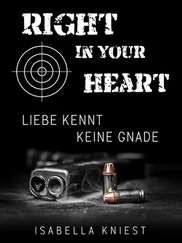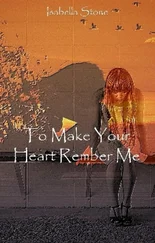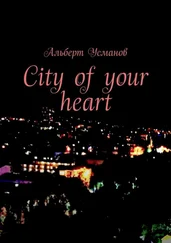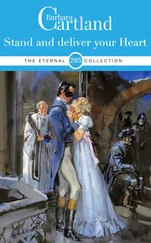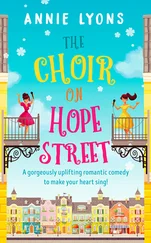Nineteen eighty-three, when the war started, Charles was fifty-four years old and newly minted as the Assistant to the Deputy Director of Economic Research for the Central Bank. In July of that year, two months into his new post, a small band of Tamil rebels in the north attacked a police station. They killed thirteen Sinhala policemen.
And thus the Tigers were born. With rifles and mortars. And the sweet Buddhist citizens of Colombo, so famous for their politeness and gentle ways, went completely mad.
These were people Charles knew. People he had once worked with at the university. His neighbors. The woman who mended his shirts. The man who brought fresh fish from the market. The toothless man who sold kites on Galle Face Green. They took to the streets in gallant mobs; they paraded in the night armed with carpentry hammers, simple boards with protruding nails, tins of petrol. The brave mobs burned the city. They tore Tamils from their homes. Tamils who had lived peacefully in the city for generations. Tamil businesses burned; Tamil homes burned; Tamil daughters raped and burned. The mobs stopped lorries on the street and demanded petrol. The petrol was placed in an empty tire. The tire was placed around a Tamil’s neck. Someone lit a match and jumped back. They called it necklacing — that manifestation of human cruelty, mob madness.
Pinpricks of anxiety across his skin because now here he was how many years later, walking among a crowd of angry citizens.
He saw a father walking with his son, small steps so the boy could keep up. He saw a group of grandmothers carrying a cardboard coffin bobbing above their gray heads.
He heard drums and the chaotic piercing shriek of policemen’s whistles, but of course the police were not blowing whistles, the half-naked people dancing in the streets were.
He thought of the actress on the plane. They had said their goodbyes on the concourse before Customs. She had offered him a ride into the city, but he politely declined, exercising his customary restraint.
“Thank you,” he said. “You’re very kind.”
But then the moment of goodbye and he was at a loss. A handshake? Lean in for a kiss on the cheek?
He had extended his hand and she had looked at it and laughed and then threw her arms wide and pulled him into a fierce hug.
“Good luck, Charles,” she said. “I hope you get what it is you want.” And then she stepped back and placed her palms together and bowed ever so slightly.
“Yes, same to you,” he said.
There seemed more to say, but what it was he didn’t know.
He sometimes felt as if there were a wall between himself and the world. Not in the moments of negotiation, but outside, beyond the gates of the club or the Parliament or the palace. His status and power were the moat, the razor wire, and twenty miles of no-man’s-land. Riding in a limo through the streets of London, D.C., Berlin, Mexico City, or Delhi, and the faceless crowds shuffling by like blobs of color, dark passing clouds of humanity drifting by the smoked-glass windows and he wanted to ask the driver to stop, wanted to step out of the car to speak to the people he saw, the shadows gathered under the trees, a million miles from his passing tires. But it always seemed there was not enough time, it was too dangerous, he didn’t speak the language, he would never understand their lives anyway. Always something. Another report to read, another call to make — but this was his life, the duty he had chosen. Not to walk in the streets communing with the souls, but to ride in the limo, calling the PM’s. To attend the conventions. To negotiate trade agreements. To build the nation through economic development. As much as he might like, his responsibility to his people did not allow him the luxury of time, of stopping to talk with them in their roadside huts.
He listened to the whistles and something like a bagpipe — could it be a bagpipe? — and he imagined Colombo, 1983, when those sticks were splitting open heads and he watched in absolute awe and a sort of admiration and disbelief as a line of cops stood on the opposite corner and watched the demonstrators peacefully pass. He heard their sweet angry American voices chanting and singing, saw their American bodies marching and dancing, and he was surprised to feel not fear, or anger, but a kind of happiness. A calm.
My god, man, he said to himself. This is America.
* * *
He worked his way into the crowd, a dampness of sweat gathering on his forehead, darkening the fabric of his Italian suit. He moved slowly, a slight limp to his step. The slowness of his gait, and the subsequent air of dignity, were partially the result of a broken foot which had never properly healed — broken during his time in Welikada Prison, years ago when he had been a leader of the opposition party, just a young man really. Ten years he had been jailed, and despite his warm manner, a certain solitude still clung to him. It was like the warmth of a tropical noon stretching into evening, a long-ago memory of suffering, forgotten, but still producing heat. The memory, he supposed, was like the broken foot improperly healed — the legacy of the injury stitched into the bone, nothing more.
He moved into the crowd, felt the familiar pleasant ache in his shoulders of fifty laps in the Mount Lavinia club pool. He needed the swimming even if he disliked the idea of belonging to a club — all the old British ways. The pretensions and condescensions of Sri Lankan high society. Behind the polite smile, the firm handshake and chuckle, he sometimes wanted to tear the bastards to pieces. Here they were born to wealth and comfort while their country threatened to slide into a chaos from which it might never return. Tiresome people, but he knew it was only human nature to believe it best to ignore suffering, to focus on your own good fortune. The human survival mechanism: to say your prayers, thank your gods, and hold your breath when you passed the slums. The sweet poison of privilege, wasn’t it? To think blindness a preferable condition. And yet, there they were whether you wanted to see or not. The unwanted of the world. People begging on the street. People without enough to eat. People without the medicine and doctors to make them well. People without proper clothes or homes. Without clean water to bathe or drink. Did these self-congratulatory club members think their inherited wealth came from nowhere save their miraculous good luck? Did they not find a connection between their obscene wealth and the obscene poverty all around them? Perhaps it was too much to suggest the fault was theirs alone. The upper class was too goddamn stupid to be blamed, frankly. But how could they do nothing? How could they look upon their fellow creatures suffering and do absolutely nothing?
He didn’t have an answer for that. He only knew he had his meeting with Clinton in six hours’ time, and now here he was standing in a crowd, the streets were jammed, and three blocks down, rising black and lovely above the crowd, there was the object of his desire twinkling in the rain: the convention center.
He pushed aside a young kid with dreadlocks, another girl with a turtle puppet. He listened to their chants and he felt the energy of the crowd around him, and it began to occur to him that perhaps the crowd was not a crowd, but something else entirely. As he continued forward, moving more slowly yet, it began to dawn on him that this was not a formless shapeless mob without intent. No — it seemed increasingly possible that their intent might be to stop him from getting to his meetings.
Forty countries in five years.
Armenia, Aruba, Austria. Belgium and Bulgaria. Canada, Croatia, Cyprus, the Czech Republic. Denmark. Estonia. Finland and France. Germany and Greece. Grenada and Guyana. Some were easier than others. Haiti, Hungary, Iceland, Italy, and Japan. Latvia, Lithuania, Luxembourg. Malta. Sweden. Switzerland.
Читать дальше
